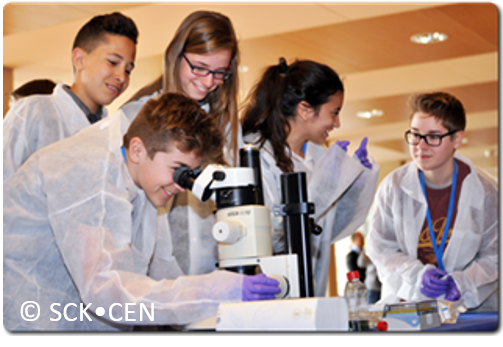All-Round Inhibition of Protein Kinase D.

Promovendus/a: Lauren Voets
Promotor(en): Prof. dr. Wim De Borggraeve
In our lifetime, even at a young age, most of us came in contact with cancer, whether through a close family member or a friend. Despite years of high-quality research, defeating cancer remains a major challenge for our society. Scientists continue to search for the underlying causes of this disease, and we continue to invest in research and development projects to continue the fight against cancer.
Cancer is a complex disease, not caused by a single specific factor in our bodies, nor does it always start in the same place. Several processes and factors can contribute to the onset of the disease. One of these factors comes from our own bodies. Protein kinases are enzymes that coordinate a range of important functions in the body. When the normal functioning of these protein kinases is disrupted, essential body processes can get out of balance, which is often linked to the development and maintenance of various diseases, including cancer.
In recent years, much research has been done towards the role of different protein kinases in cancer. One specific family of these enzymes, the protein kinase D (PKD) family, emerged as a key player. Disruption of the normal functioning of these kinases has been linked to several types of cancer. The PKD family consists of three 'members': PKD1, PKD2, and PKD3. Overactivation (overexpression) of some of these kinases is associated with the development, growth, and survival of several types of cancer. This discovery highlights the importance of suppressing such overexpression.
The development of clinically relevant PKD inhibitors could therefore be another crucial breakthrough in cancer research. This thesis builds on previous research towards PKD inhibitors and focuses specifically on improving their selectivity. The aim is to develop PKD inhibitors with high affinity and specificity for and within the PKD family, so that other processes in the body are not disrupted. To this end, we have developed four groups of PKD inhibitors, each employing a different mechanism of action, allowing us to choose the kind of PKD inhibitor depending on its intended purpose.
All Dates
- 2024-12-02 17:00
Powered by iCagenda





